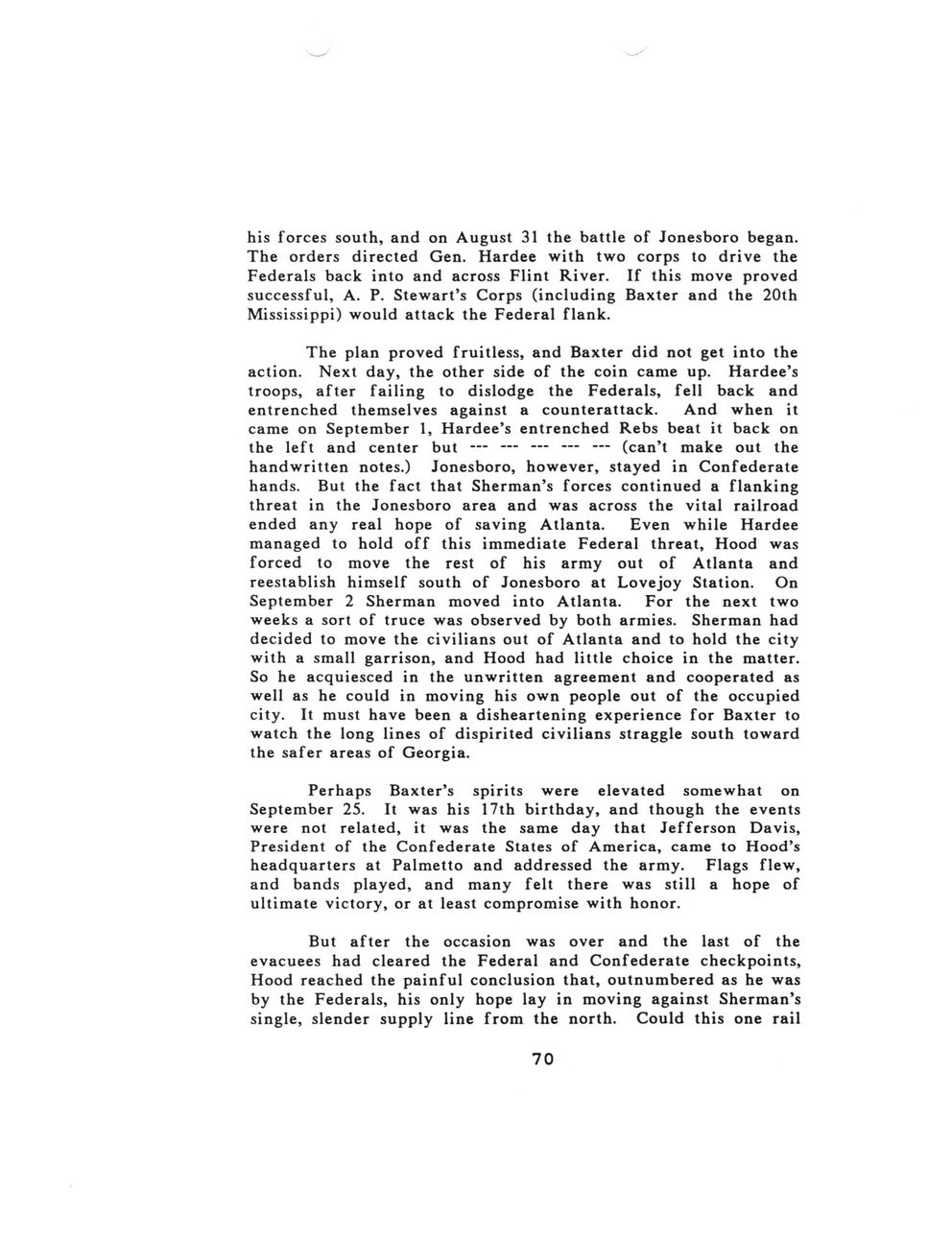This text was obtained via automated optical character recognition.
It has not been edited and may therefore contain several errors.
his forces south, and on August 31 the battle of Jonesboro began. The orders directed Gen. Hardee with two corps to drive the Federals back into and across Flint River. If this move proved successful, A. P. Stewart?s Corps (including Baxter and the 20th Mississippi) would attack the Federal flank. The plan proved fruitless, and Baxter did not get into the action. Next day, the other side of the coin came up. Hardee?s troops, after failing to dislodge the Federals, fell back and entrenched themselves against a counterattack. And when it came on September 1, Hardee?s entrenched Rebs beat it back on the left and center but ? ? ? ? ? (can?t make out the handwritten notes.) Jonesboro, however, stayed in Confederate hands. But the fact that Sherman?s forces continued a flanking threat in the Jonesboro area and was across the vital railroad ended any real hope of saving Atlanta. Even while Hardee managed to hold off this immediate Federal threat, Hood was forced to move the rest of his army out of Atlanta and reestablish himself south of Jonesboro at Lovejoy Station. On September 2 Sherman moved into Atlanta. For the next two weeks a sort of truce was observed by both armies. Sherman had decided to move the civilians out of Atlanta and to hold the city with a small garrison, and Hood had little choice in the matter. So he acquiesced in the unwritten agreement and cooperated as well as he could in moving his own people out of the occupied city. It must have been a disheartening experience for Baxter to watch the long lines of dispirited civilians straggle south toward the safer areas of Georgia. Perhaps Baxter?s spirits were elevated somewhat on September 25. It was his 17th birthday, and though the events were not related, it was the same day that Jefferson Davis, President of the Confederate States of America, came to Hood?s headquarters at Palmetto and addressed the army. Flags flew, and bands played, and many felt there was still a hope of ultimate victory, or at least compromise with honor. But after the occasion was over and the last of the evacuees had cleared the Federal and Confederate checkpoints, Hood reached the painful conclusion that, outnumbered as he was by the Federals, his only hope lay in moving against Sherman?s single, slender supply line from the north. Could this one rail 70

Baxter, Marion Francis Marion-Francis-Baxter-Bio.-070